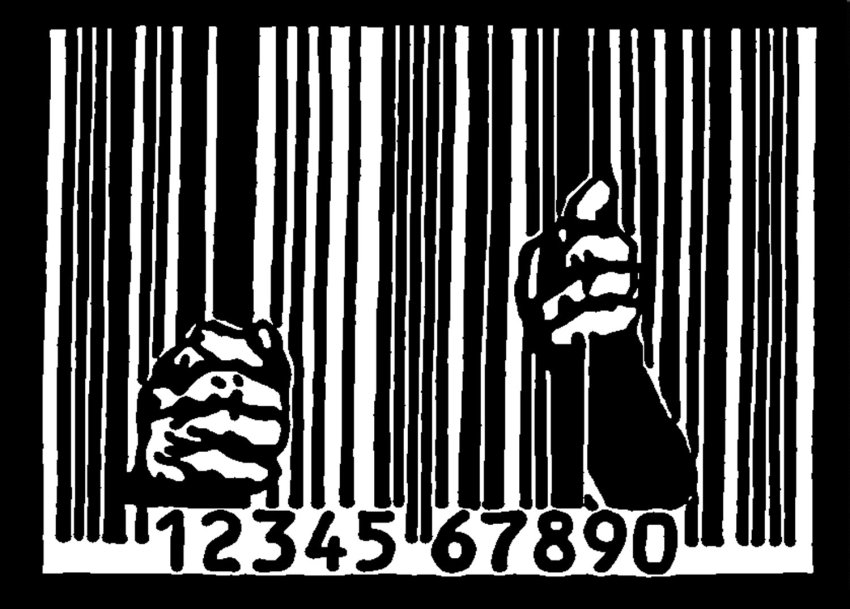
The Western Australia Liberal government recently said its lucrative prisoner transport contract with private security firm G4S would end in July. Another private company, the British-based conglomerate Serco, will take over.
The move came after a long campaign against G4S and the WA department of corrective services over the death of Aboriginal man Mr Ward, who died of heat stroke in a G4S van during a 360 kilometre trip in January 2008.
The state coroner said G4S was directly responsible for Mr Ward’s awful death.
But the key demand of the Mr Ward campaign wasn’t just getting rid of G4S; it argued for an end to the privatisation of prisons and prisoner management.
The awarding of the contract to the secretive Serco has disgusted many.
It’s the second time G4S has lost a contract to Serco; the federal government gave Serco the contract to run Australia’s refugee detention network in 2009.
Serco runs two of the eight privately-run prisons in Australia — WA’s biggest prison Acacia, and Queensland’s Borallon prison.
It is aggressively lobbying the NSW government to take over Parklea prison — already privately run by the GEO Group — and Cessnock prison, which was the centre of a resolute anti-privatisation campaign in 2009.
Cessnock prison has since remained in public hands.
G4S (formerly GSL) still runs prisons at Port Phillip in Victoria and Mount Gambier in South Australia.
Supporters of prison privatisation say that it will lead to better prisons, due to private sector “competition” and less bureaucracy. However, private prisons in Australia go largely unregulated and information about conditions inside is limited.
A recent glowing report by the state inspector into Serco’s Acacia prison ignores the fact that when profit is the main motive, it conflicts with prisoner welfare.
Privatisation creates an incentive for more inmates and longer jail time; the more who go in, the more money comes out.
A 2004 NSW parliament paper said Australia has the “highest proportion of inmates in private prisons of any nation at around 17%”. Companies like Serco and the GEO Group — which runs four Australian prisons and many more in the US — will fight to have the number rise.
The US has been privatising prisons since the 1980s and has the biggest inmate population in the world. It holds 25% of the world’s prison population (2 million people) but accounts for only 5% of the world’s population.
In the US, private prison companies form a powerful lobby to push stronger criminalisation of laws that target the poor (such as the “war on drugs”) and immigrants, raising incarceration rates and sentencing times.
As a result, the number of people held in private prisons has swelled by one third over the past decade to 90,000.
This “prison-industrial complex”, with investors on Wall Street and trade shows across the country, is a fast growing and hugely profitable industry.
Inmates form a source of cheap labour. Since privatisation began at least 37 states have legalised the use of prison labour, which is contracted out to other corporations, construction companies and surveillance and technology vendors.
The Centre for Research on Globalisation says companies such as IBM, Boeing, Motorola and Microsoft are among a long list of companies with operations inside prisons.
A March 2008 Global Research article said “the federal prison industry produces 100% of all military helmets, ammunition belts, bulletproof vests, ID tags, shirts, pants, tents, bags and canteens”.
Prisoner labour is cheap — as low as 25 cents an hour — and they have no rights. A strike for working rights in a prison in Georgia was brutally repressed last year.
Thanks to the lobby, laws in the US have changed to make previously legal things a crime, and punishments have become harsher. The “three strikes” law in several US states — life in prison for three convictions — is one example.
Another is Arizona’s SB1070 anti-immigration law, which has been condemned for blatant racial profiling, targeting people of “Latino appearance” and other migrants.
Immigrantsforsale.org says this law is directly linked to the multi-billion dollar prison industry. Lobby group ALEC “crafted a model legislation that became almost word for word Arizona’s SB1070” — other states have begun to copy the law.
It says that the private prison industry in the US makes $5 billion a year and has spent “over $20 million lobbying state legislators to make sure they get state anti-immigration laws approved and ensure access to more immigrant inmates”.
They make $200 per immigrant in prison a night. And $72,000 per immigrant each year.
A May 18 New York Times article said the industry “has struggled, in some places, to fill prison beds as the number of inmates nationwide has leveled off” — so states such as Arizona, Ohio and Georgia are signing deals to turn over their overflowing prison population to the private companies.
In 2006, due to overcrowded prisons, California’s Republican governor Arnold Schwarzenegger used emergency laws to move 10,000 inmates to private prisons in other states.
The prison industry is not about rehabilitating prisoners, reducing crime or improving “services”. It is about keeping jails full.
Keeping a steady flow of prisoners is essential to the profits of companies like Serco.
Those who feel horrified by the path the US has taken, and who find it morally wrong that obscene profit can be made from state punishment, should oppose the privatisation of any detention centres, whether of prisoners, refugees or migrants.
Comments
Anonymous replied on Permalink